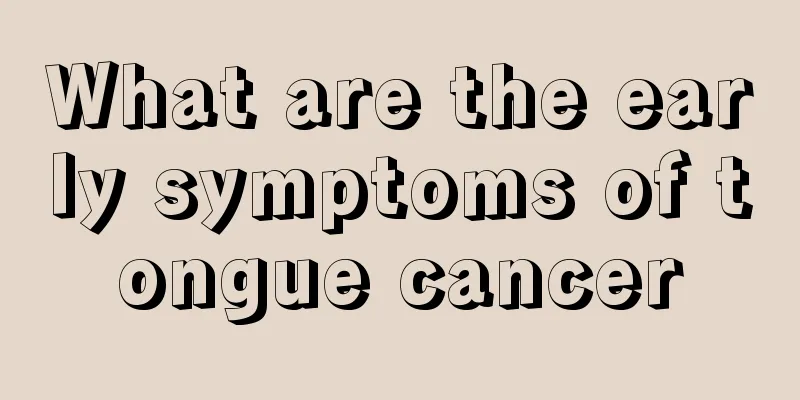How to relieve pain in late stage nasopharyngeal carcinoma

|
Many cancers will have symptoms of pain in the late stage, so it is not surprising that patients with late stage nasopharyngeal cancer will have this symptom. The author will now introduce to you how to relieve pain in the late stage of nasopharyngeal cancer. Pain relief for late stage nasopharyngeal carcinoma is divided into drug analgesia and non-drug analgesia. Drug analgesia is the most accurate. Different analgesics are given according to the patient's pain level, and the analgesic effect and drug side effects are observed, and abnormal medication is reduced or stopped in time. When pain causes irritability in patients, sedatives should be given appropriately. Principles of painkiller use: ① Administer medication on time: Regular medication can prevent pain from occurring or worsening; ② Individualization: According to the actual situation of the specific patient and the analgesic effect, choose the appropriate dosage to achieve complete pain control; ③Oral administration: It is beneficial for maintaining the independence of patients and for long-term use, and can avoid various discomforts caused by long-term injections. Non-drug analgesics are used to assist in the treatment of nasopharyngeal cancer pain. For example, patients can listen to music, watch movies, and other entertainment activities, or sit quietly and take rhythmic deep breaths to distract their attention, which can help patients produce positive physiological changes and enhance the analgesic effect of analgesics. Peppermint oil, camphor tincture, and borneol can also be applied topically to relieve local pain. We can also prevent nasopharyngeal cancer. We should strengthen exercise, strengthen our physical fitness, and reduce the chance of infection with EB virus. The specific approach is: insist on washing your face with cold water to prevent colds. Actively treat acute rhinitis, nasal adjacent organ diseases and systemic diseases to prevent the induction of this disease. Avoid staying in an environment with toxic or irritating gases and dust for a long time. Patients cannot blow their noses hard to prevent turbid noses from entering the ears. Vasoconstrictors, such as ephedrine, nose and eye cleaning, etc., must not be used for a long time to avoid drug-dependent rhinitis. |
<<: What are the steps for cervical cancer screening
>>: What to do if nasopharyngeal cancer ulcerates
Recommend
Can sodium bicarbonate be used to treat mold?
Many people have heard of sodium bicarbonate, whi...
The efficacy and function of malt and barley sprouts
Barley malt is a plant and a Chinese herbal medic...
7 poisonous succulents
Nowadays, more and more vendors are selling succu...
The day before colonoscopy
Doctors usually tell patients to empty their inte...
Does nasopharyngeal cancer surgery require hospitalization?
After nasopharyngeal cancer surgery, patients gen...
How to lighten leg hair
Many people have too much leg hair, which will be...
What are the characteristics of laryngeal cancer?
In recent years, laryngeal cancer has become a ma...
Symptoms of ovarian tumors in women
Ovarian cysts are a relatively common female ovar...
What are the symptoms of fetal heart rate arrest?
Most women are very happy when they find out they...
How to prevent pregnancy without an IUD? Several common contraceptive methods
Nowadays, many people have started to adopt a ser...
How to correctly examine duodenal ulcer
For the common disease duodenal ulcer, everyone m...
Does swimming affect eyesight?
Swimming as a form of physical exercise is very g...
Does eating eggs aggravate prostate cancer?
Will eating eggs aggravate prostate cancer? Prost...
Ways to keep healthy in autumn, teach you how to keep healthy in autumn
It should be said that we have to pay attention t...
What are the treatment and nursing methods for bradycardia
Bradycardia is a type of heart disease and is usu...









